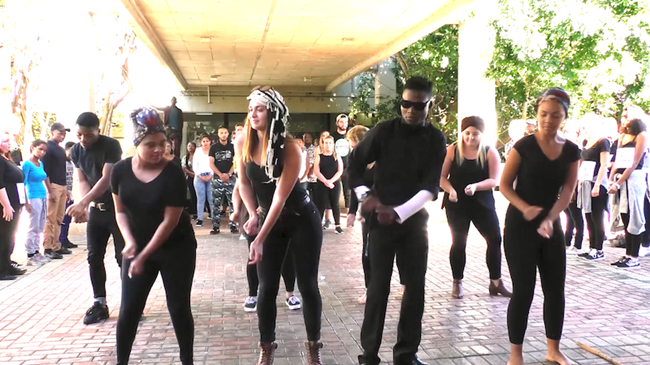 Dr Yassim explores curriculum as a lived experience by designing a humanising pedagogical learning journey in which student teachers engaged with not only the African lived experience, but also the idea of Ubuntu as a central way of being.
Dr Yassim explores curriculum as a lived experience by designing a humanising pedagogical learning journey in which student teachers engaged with not only the African lived experience, but also the idea of Ubuntu as a central way of being.
The teaching and learning innovation explored in this project saw students bridge the conceptual and practical divide by actions that help towards enhancing justice in educative relations.
Upon conclusion of the module, students are provoked towards imaginative action and a renewed consciousness of possibility. Experience takes them to a state of learning whereby they acknowledge humanity in themselves and within others – in which Ubuntu is lived in all encounters and recognised as a way of being.
The innovation aimed at fostering a culture of sharing and engagement with the students open to the new and unexpected; and taught to contribute towards cultivating a learning community, both face-to face and online.
The second part of the project included an art-based group assessment that required students to conceptualise their collective ideas on the themes of the module into a ‘protest dance’ using Hip-Hop. To achieve the outcomes in exploring dance as a medium of reaching understandings within a African philosophy, well-known hip-hop dance instructor, Cheslyn Meyer partnered as a dance consultant for the assessment. Cheslyn assisted the students to plan a production called “Africa, my Africa,” with the main theme being interconnectedness through ‘living Ubuntu’.

The student experience through feedback showed that many students were reluctant to participate with students expressing discomfort with critical pedagogies as it pushed them towards trust that does not come naturally, as explained by Dr Yassim.
As the facilitator, she explains that the dance assessment for most started with fear of the unknown and confusion around “what will this teach me?” and how to conceptualise learning in forms that are not the norm.
An interesting observation made by Dr Yassim was the inclusion of learning partners such as Cheslyn Meyer that was not commented on and she states, “… and I wondered why…since the intimacy of contact would have resulted in developing relationships. What is clear though is the reluctance of students to see community members as resources.”
Students provided mixed feedback with some stating that, “strong friendships with people I didn’t know or speak to before happened”, “the module brought us together”, and “we became a family”. Students felt that their perspectives and attitudes were changed. They felt more “open” and “more included”. They commented on the value of “multiple voices” and how “misconceptions were eliminated.” They felt that their thinking had been developed. Their ideas were challenged and they engaged in “complex and abstract thinking.” In trying the unfamiliar they were encouraged to think “outside the box.” Many reflections valued this opportunity and felt the personal transformations implicated in developing thinking skills.
Finally, as a means of reflective practice, the methodologies used to enhance teaching and learning were commented on as “innovative”, “out-of-the-box” and “enabled me to see what possible methodologies I could use in my classroom one-day.”
This module through innovative practice in teaching and learning changed, altered and broke, in many scenarios, a thinking towards learning and teaching with a student commenting, ”learning is not easy; it needs effort. If you fall you must rise up and start the journey again.”
Watch the video here: